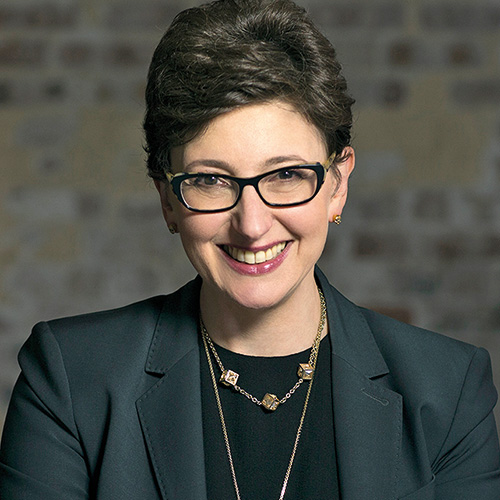I’ve always had a bit of a thing for stationery. I look forward every year to the arrival of my new Moleskine organiser, my tabula rasa of order and potential. I almost immediately write down an aide-memoire for each spell of annual leave I plan to take: “Update out-of-office auto-reply.” I am aware of how tragic this confession may sound, but I am also willing to bet that you know what I mean – not only about the joys of an analogue diary, with its narrow-ruled lines and concertinaed pocket at the back, but also about the power of the little digital cloak of invisibility that is the email auto-reply. (I should probably stop the confession here, but I do wonder if I’m alone in continuing to check my email once the automated message is up and running, just for the frisson of finding out for myself who will have received it, and who, consequently, is simply going to have to wait a while for a response.)
The auto-reply is a signal that, for whatever reason, I am stopping, or – at the very least – slowing down for a bit. And the symbolism of that signal is potent in a world that seems never to switch off. How to navigate the “age of overload” that so many of us inhabit is the project that is central to Julia Hobsbawm’s short but innovative study.
As Maggie Berg and Barbara Seeber wrote in last year’s outstanding The Slow Professor: Challenging the Culture of Speed in the Academy, “it is not so much a matter of managing our time as it is of sustaining our focus in a culture that threatens it”. The irony is that part of the threat comes in the form of digital connectedness, the relentlessness of which necessitates better care of what Hobsbawm calls “social health”. Her book is in one sense, then, a contribution to the “slow professor” movement, and, in another, a development of the ideas about work-life balance that she shared in her 2009 work The See-Saw: 100 Ideas for Work‑Life Balance. “If my life were a household budget”, Hobsbawm wrote then, “I’d be down to zero every month at best, overdrawn every week at worst.” In the intervening eight years, she’s clearly learned a lot, and in Fully Connected she shares that knowledge.
Hobsbawm’s writing style has about it an immediacy that one would not necessarily expect from a “business” book. It opens, for example, with a preface about the spread of the Ebola virus in 2014. The epidemic, in Hobsbawm’s persuasive formulation, was remarkable not least because it embodied both love and horror: in the early days of the outbreak that eventually killed more than 11,000 people, the bodies of the deceased were kissed and caressed by mourners, and this human connection hastened Ebola’s spread. Her discussion of how this connectedness led to tragedy is the perfect way in to thinking about how, as she puts it, “society is underpinned and connected by a mosaic of networks”. She sustains this powerful metaphor throughout her book, examining “how we manage the spread and containment of modern connectedness”, and advocating social health, in which connections are enhanced, rather than replaced, by technological ones.
It’s a truism that progress is a Good Thing. It isn’t always. In this “fully connected” era, we should be enjoying the luxury of an indolence that our toiling ancestors could never have imagined. But we have become sick of our digital excesses, and sick because of our digital excesses, to the point where, in Hobsbawm’s words, today “we are learning afresh what it means to live cheek by jowl with another species entirely: technology”.
To illustrate the lessons – which are at times very difficult ones – to be learned from living with technology, Hobsbawm gives examples of events that will be familiar to UK readers and that have entered our consciousness almost as chilling postmodern collocations: the Ebola outbreak, the Soham murders and the death of Baby P. These tableaux give the book an immediacy, exemplifying how connections and disconnections between people can prove fatal if they are misunderstood or misapplied. “I like the idea of the connected body,” Hobsbawm writes at one point, “with all of its bones and joints joined together, as a metaphor for healthy connectedness in a wider context”, and her recognition of the importance of “a family, a village, a community” is a reassuring corrective to the nakedly insular neoliberal agenda that so often governs books in the self-help genre.
Fully Connected ends with “six main principles and practices to ‘takeaway’ and act on in the immediate future”. My favourite is disconnection, or the instigation of a “techno Shabbat”, since spending one day a week “to connect…with yourself, your family, your community, without the prop, benefit or accompaniment of technology is essential”. It was not only the subliminal power of the religious language Hobsbawm uses that made me want to shout “Amen!” at this point.
The fully connected era is, for Hobsbawm, a health crisis that we have yet to address adequately. Those who have already attained a state of social health know how to forge meaningful networks and connections, and can “balance face-to-face and technology, and know where to find the off switch” – but too few of us have managed it.
The book’s evangelical tone meshes well with the (sometimes autobiographical) spots in time that pepper it, anchoring Hobsbawm’s theories in a relatable, if occasionally overwrought, way. “Picture the scene,” she exhorts her readers at one point: “It is 1770.” Moments like this will not sit well with everyone, nor will some of the buzz terms she favours: I felt patronised (and a little hungry) by the language of “information obesity”, “time starvation” and “marzipan managers”.
Similarly, Hobsbawm’s diagram of “the hexagon of social health” feels unnecessarily condescending, with infelicitous echoes of the recent spate of satirical takes on Ladybird books (specifically a moment in one volume titled The Meeting, where “The facilitator has used the whiteboard to illustrate the Hexagon of Unexpectedness”). And at times her metaphors simply don’t work, as when the “old, lumbering dinosaurs of the office jungle” confront “smaller, more agile bees”. At points such as this, I was left none the wiser. But there are, to counter such jarring images, plenty of insightful observations: “Even for those like me who have enjoyed the vast majority of their work, feeling energized, creative, productive and stimulated, it is still often a dominant, domineering, heavy creature.”
The message of social health at the book’s heart is a vital one, and it’s one that Hobsbawm is well placed to share. I finished reading Fully Connected and returned to another book, Audre Lorde’s brilliant 1988 essay collection, A Burst of Light. “Caring for myself is not self-indulgence,” Lorde writes there, “it is self-preservation, and that is an act of political warfare.” Books such as Hobsbawm’s provide valuable ammunition for precisely such battles.
Emma Rees is professor of literature and gender studies at the University of Chester, where she is director of the Institute of Gender Studies.
Fully Connected: Surviving and Thriving in an Age of Overload
By Julia Hobsbawm
Bloomsbury, 256pp, £20.00
ISBN 9781472926845
Published 20 April 2017
The author

Author, entrepreneur and educator Julia Hobsbawm was born in London to Eric Hobsbawm, the eminent Marxist historian, and Marlene Schwartz, a refugee and a “Viennese-born girl in an ocelot coat”, as her husband described her in his autobiography.
Named to a visiting chair in 2011 in what the institution described as a world first, Hobsbawm is professor of networking at Cass Business School, City, University of London. “Networking is a form of intellectual fitness...as invaluable to productivity and therefore economic performance as physical fitness is to overall health,” she commented on her appointment.
From 1993 to 2001 she ran the publicity firm Hobsbawm Macaulay Communications with Sarah Macaulay, and in 2005 founded Editorial Intelligence (“where smart people meet smart ideas”). An academic career may not have been in her plans, as she was a reluctant student, she recalled to the Jewish Chronicle: “I think my father’s abilities cast a set of expectations on me that I never was going to deliver and a lot of my teachers were very evidently disappointed.” She attended the Polytechnic of Central London (now the University of Westminster), “but I knew that I didn’t really want to be there; I wanted to start working”.
Hobsbawm has argued that networking is a valuable undertaking even for young people who lack money, social capital, a leafy London postcode and access to that inevitable euphemism, “a good school”.
In a 2014 interview with The Guardian, she said: “What they need is not friends in high places, it’s to know that they can go into the world and make connections. What you really need is to teach them how to have a mind outside their immediate, closed community. I am not remotely interested in politics and the tribalism of politics, but I am interested in social mobility and social change.”
POSTSCRIPT:
Print headline: Turn off the phone and tune in to the world around you
Register to continue
Why register?
- Registration is free and only takes a moment
- Once registered, you can read 3 articles a month
- Sign up for our newsletter
Subscribe
Or subscribe for unlimited access to:
- Unlimited access to news, views, insights & reviews
- Digital editions
- Digital access to THE’s university and college rankings analysis
Already registered or a current subscriber?
